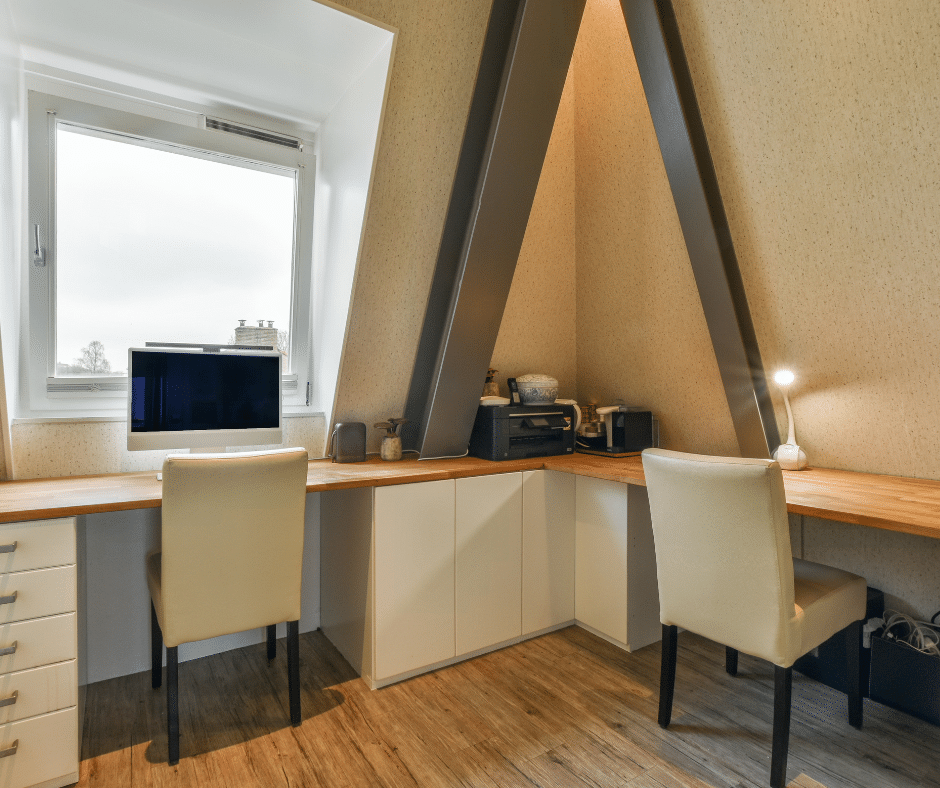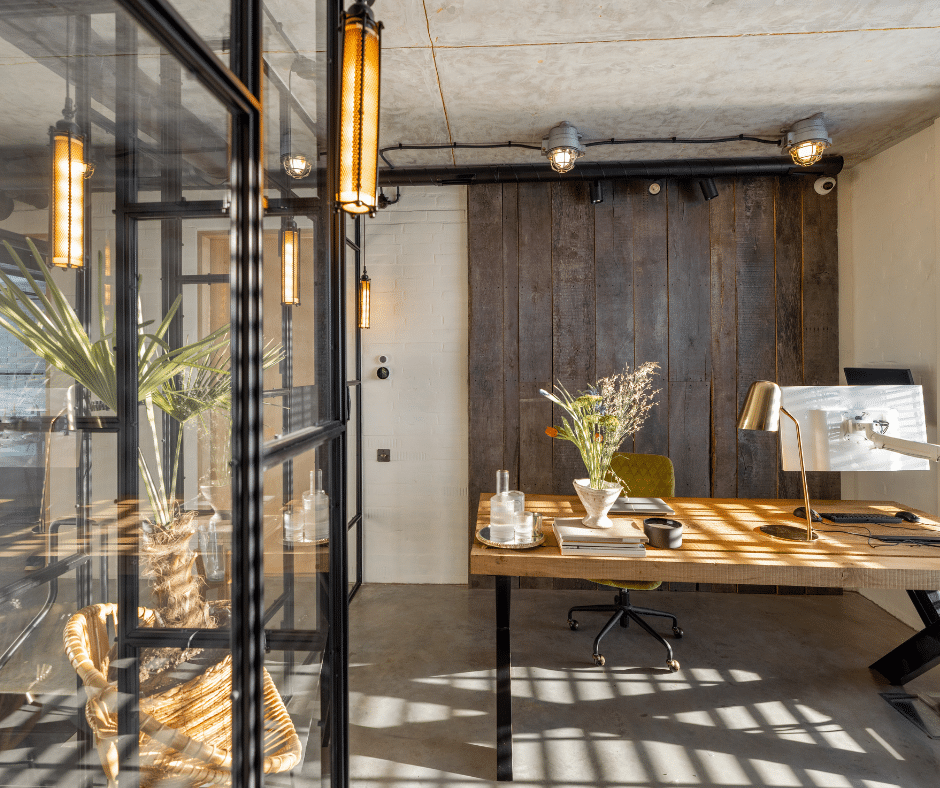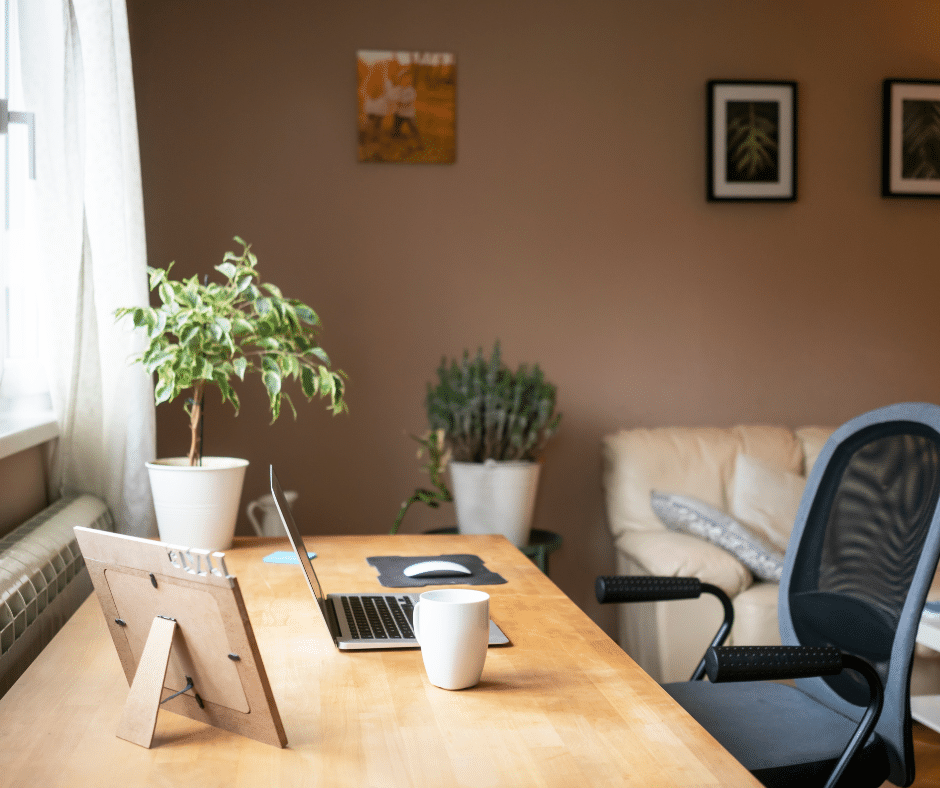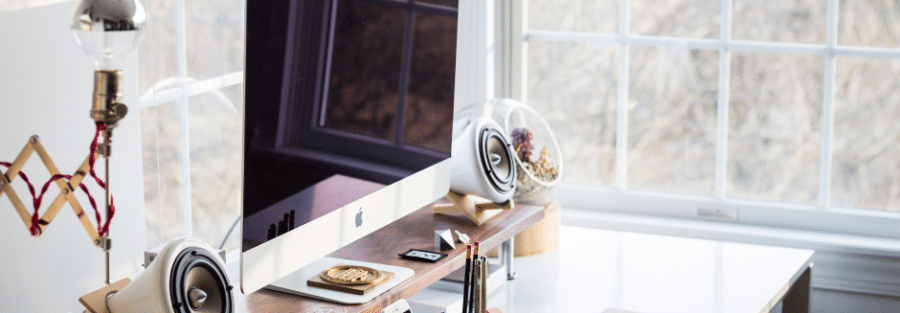Did you know some business-related home office costs are tax deductible? Are you a small-business owner, contractor or freelancer and work from a home office?
With the rise of flexible work arrangements, more people are working remotely and given up renting office space. Consequently, the concept of a home office has taken on a whole new significance. Not only does it provide convenience and flexibility, but it also offers potential tax benefits.
If you use part of your home exclusively for work purposes, you may be eligible to claim home office expenses as tax deductions. However, understanding the rules and regulations surrounding this area can be daunting.
In this article, we’ll unravel the complexities of claiming home office expenses and guide you through the process. If you’re a self-employed professional, remote worker, or a freelancer, read on! Knowing how to navigate the intricacies of home office tax deductions will help you optimise your tax return. And potentially increase your savings!
So let’s dive in and demystify the world of claiming home office expenses.
Separating Home Office Expenses: Private v Business Costs
The connection between home office expenses and income-generating business activities is a crucial aspect. You are generally entitled to claim tax deductions for home office expenses to the degree they are incurred to:
- Generate or derive income; or
- Specifically run your business.
You must determine if your household costs are incurred for business or private purposes. Or both of them.
Your home office space must be “separately identifiable” and used primarily for business purposes. It should be obvious to a third-party, your space is identifiable and used separately for your business.
So sorry, working on your kitchen benchtop doesn’t represent an office because your kitchen is not “separately identifiable”!

But maybe you’ve converted an unused bedroom you no longer use, into a home office. Or perhaps you park your car in your garage or store your tools or inventory in it. You may only claim expenses on the areas your vehicle occupies or the area you use for storage.
TIP: The area doesn’t have to be used exclusively for business purposes. But it must be used primarily for business purposes. Using it for more than 50% would be generally acceptable.
Which Home Office Expenses Can I Claim?
Are you among the growing number of individuals working from home? You’ll be pleased to know there are several home office expenses you may be able to claim.
- The first category includes direct expenses. These include the cost of purchasing and maintaining office equipment like computers, printers, and furniture you use exclusively for your work.
- Another category is indirect expenses. These cover shared household costs like utilities, rent or mortgage interest, telephone and internet, and insurance. Additionally, you may be able to claim some repairs, renovations, and cleaning that specifically relate to your home office area.
TIP: Keep detailed records and consult with your tax professional. Ensure you correctly claim these deductions within the rules set by the Inland Revenue.
How Much Home Office Expenses Can I Claim?
IRD allows you to choose one of two options to work out home office expenses:
- #1: A Square Metre Rate
- #2: Actual cost method
#1. Square Metre Rate
The Square Metre Rate is a basic method for determining home office expenses. Every year, IRD issues a rate based on average expenses that Kiwi households spend on utilities per square metre. For the year ended 31 March 2023, the square metre rate is set at $51.05 per square metre.
Mortgage interest, water and council rates, and rent are excluded from the rate. You must work out those costs using a percentage of the footprint your business occupies. You don’t have to retain records of these costs if you use this rate.
Example: Let’s assume the following:
- Your entire house’s floor area is 120 square metres.
- You stored business records and tools in your garage, which is 24 square metres.
- You used a spare bedroom exclusively as a business-related office, which is 8 square metres.
- You paid $14,250 mortgage interest and $2,450 in rates and during the year.
Consequently, the total area you use for business is 32 square metres (24 + 8). This represents 26.7% of your home and garage’s total floor space (32/120).
In this example, you can claim the following home office expenses:
- 32 square metres @ $51.05 per square metre.
- 7% of the $16,700 you paid on your mortgage interest and your water and council rates.
Your total tax-deductible home office expenses are $6,092.50!

#2. Actual cost method
The actual cost method is an alternative approach you can use to claim home office expenses. You claim the actual expenses you incurred for using a portion of your home for business use. This method requires careful record-keeping and documentation to support your deductions. You must keep your as bills, receipts, and statements.
To claim home office expenses using the actual cost method, you must proportion them based on the percentage of your home used for business purposes. You must exclude personal expenses unrelated to your business.
Example
Using the example in the Square Metre Rate to explain, we determined you use 26.7% of your home for business use. You also spent $14,250 on mortgage interest and $2,450 on rates.
But you also incurred $2,250 on gas and electricity, and $550 on contents insurance for the year ended 31 March 2023.
In this example, your total home office expenses are calculated as:
- Total spent * Proportion of your home you allocated for your business.
Therefore you can claim $5,207 ($19,500*26.7%) as home office expenses.
Telephone and Internet
But it gets better! You also spent money on telephony and internet, as follows:
- Telephone line rental. You spent $420. As you don’t have a separate business line, you have determined you can only claim the maximum 50% allowable.
- Telephone business calls cost you $242, which you have itemised these from your bills.
- You have determined that it’s fair and reasonable to claim 70% business use of the $1,920 you spent.
Therefore, you can also claim $1,796 ($420*50% + $242 + $1,920*70%) for your telephone and internet.
Based on the current company 28% tax rate, your tax saving would be $1,961 (28% x $5,207 + $1,796)!
Home Office Expenses and GST
If your business is registered for GST, you must adjust your home office claim. You must remove the 15% GST component from your expenses. You can include the GST amount via your GST return. However, your mortgage interest or rent doesn’t include GST, so those figures will not alter. You must also exclude you’re the principal component of your mortgage repayments from your home office expenses.
When you use the Square Metre Rate option, you can’t include the GST component on your GST return.

The Importance of Keeping Records
Keeping accurate records is crucial when it comes to claiming home office expenses for tax purposes.
We recommend maintaining a dedicated file or digital folder specifically for this purpose. This should include receipts for office supplies, utility bills, internet expenses, and any other costs directly related to your workspace. By establishing a well-organised system, you can maximise your eligible deductions and avoid potential headaches during tax season.
Consider subscribing to accounting software to help reduce time you spend on bookkeeping and administration. Contact us at Business Advisory Services to learn more.
Invest in Tax Professionals
When claiming home office expenses for tax purposes, seeking professional assistance can be highly beneficial.
Navigating the intricacies of tax regulations can be daunting. Having a professional tax advisor or accountant can help ensure accuracy and maximise your deductions. They possess extensive knowledge of tax laws. They’ll guide you through the process of identifying eligible expenses, such as utilities, mortgage interest, and depreciation.
They can also help you determine the appropriate proportion of your home that can be claimed as a home office.
By relying on professionals, you can minimise the risk of errors or audit triggers, ensuring compliance while optimising your tax benefits. Their expertise can provide peace of mind. They’ll potentially save you both time and money, allowing you to focus on your work with confidence.
Reduce your tax bill by working with an experienced accountant. Get in touch with Business Advisory Services today and find out how.
Conclusion
Claiming home office expenses for tax purposes requires careful attention to detail and adherence to the relevant regulations. By establishing an exclusive workspace, maintaining meticulous records, and understanding the different deduction calculation methods, you can confidently optimise your tax benefits.
Stay informed, take advantage of available deductions, and ensure compliance to make the most of your home office expenses tax benefits.



